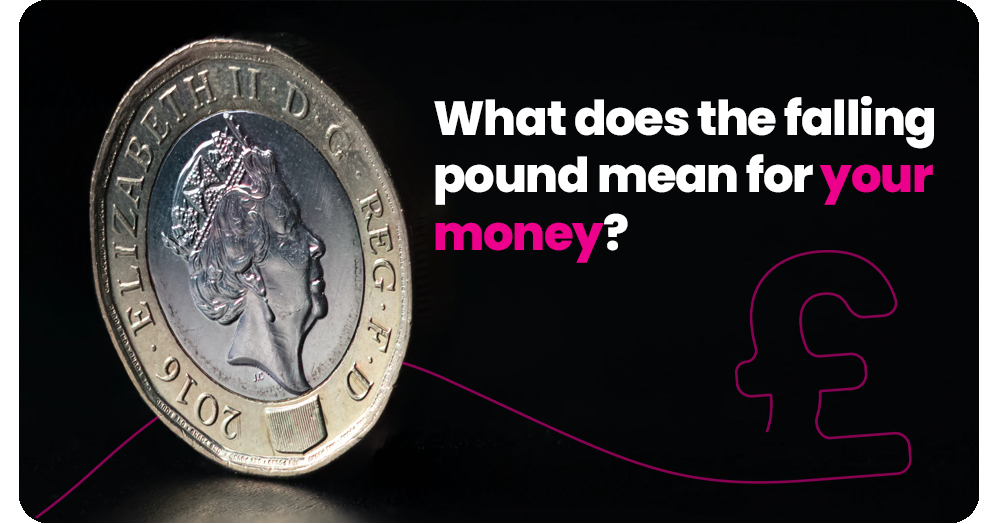
The pound falls to record low...But what does this mean for your money?
The pound has fallen to an all-time low against the dollar in the wake of new Chancellor Kwasi Kwarteng’s mini-Budget, pushing experts to call for immediate intervention to prevent the UK spiralling into a currency crisis.
Sterling fell by more than 4% to $1.05 on Monday 26 September. It also hit a 20-year low against the Euro with £1 worth €1.11. At the time of writing, £1 is worth $1.08.
The pound had already dropped on Friday 23 September to a 37-year low in the wake of massive tax cuts in Kwarteng’s mini-Budget.
In response, the new Chancellor refused to comment on the shock currency news: “I’ve been focused on the longer term and the medium term, and I think it was absolutely necessary that we had a long-term growth plan.”
But, analysts have responded differently. Citigroup’s head of foreign exchange strategy Vasileios Gkionakis said: “The UK is now in the midst of a currency crisis.”
It may even mean emergency action from the Bank of England in the form of an extra base rate rise. Sir John Gieve, the central bank’s deputy governor during the financial crisis in 2008, told the BBC that the bank may have to increase rates ahead of the next decision-making meeting in November. The bank already raised rates by 0.5 percentage points to 2.25% just last week in a bid to tackle rising inflation.
Here we explain what it means for your personal finances and what you can do.
What a weak pound means for your money
Sarah Coles, senior personal finance analyst at Hargreaves Lansdown, says: “The plunging pound is effectively picking our pockets and making us poorer. The market reaction to the tax and spending plans announced on Friday will have a profound impact on everything from the cost of filling up the car and supermarket prices to debt repayments and the value of our savings.
1. Everything from supermarket staples and high street basics to beer, electronics and raw materials will become more expensive as the cost of importing goods will rise - this is because when the pound is weak it’s more expensive to buy things from abroad and all our supply chains are global. This in turn will push up prices for the ordinary consumer and push up inflation further.
2. Mortgage deals have been pulled from the market by Halifax, Virgin Money, Skipton Building Society, Scottish Building Society, Bank of Ireland, Clydesdale Bank, Paragon and Leek United Building Society because of the rocky market conditions from the falling pound
3. If the Bank of England raises interest rates (which looks likely) it will make the cost of borrowing more expensive - including mortgage payments and new mortgage deals. It can also drive up the cost of loans and credit cards.
4. The weak pound will also mean drivers will pay more for petrol despite prices falling last week. As oil is priced in dollars it means a tank of fuel is now around £5 more right now according to the AA(opens in new tab).
5. The value of your pension or investments may also be affected by a weak pound. If you hold shares in companies abroad, their value will be affected by serious currency drops.
6. Savers are likely to lose more of the value of their savings because the falling pound is likely to push inflation higher.
7. If you’re planning to go on holiday, you’ll get less travel money as you’ll get fewer dollars or euros for each pound you exchange. It will mean anything you buy while abroad will seem more expensive.
8. Energy bills will come under pressure. Despite the Energy Price Guarantee freezing our bills for the next two years, wholesale gas and oil prices are priced in dollars meaning energy firms will pay more for the supplies they get from abroad. These costs may be passed onto customers in years to
come.
If you have questions about the contents of this blog, or would like to speak to an experienced avocado partner, get in contact via the link below. We'd love to chat.